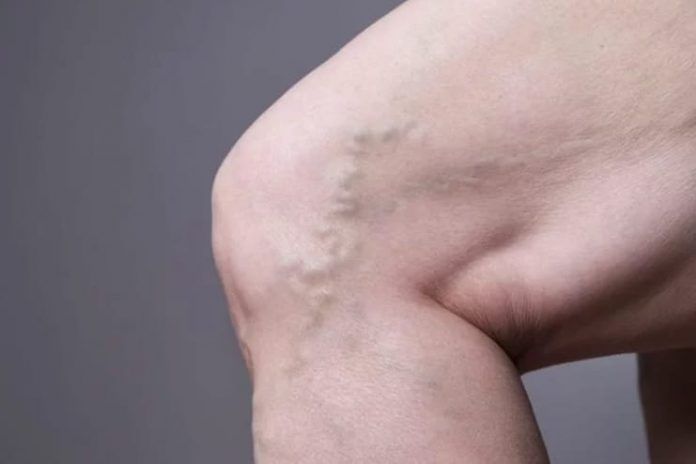Affiliate Disclaimer
Some links in this article are affiliate links. We may earn a small commission if you make a purchase through these links, at no extra cost to you. We only recommend products we find useful to our readersHow bad that you go to sleep at night with everything in perfect shape and size but then wake up to something painful and inflamed? Have you witnessed inflammation on your legs, especially in the cuff region? Probably, isn’t it? Well, according to medical terms, you are suffering from varicose veins.
The symptoms tend to scatter and reign on similar grounds for the majority of the people. While some actually tend to feel pain in the inflamed region of the affected area, some tend to just feel the area as bumpy and tender because of the dilated veins.
If you have been experiencing similar kind of symptoms, it is time to opt for some medical attention to it. In this article, we are going to discuss the common remedies for varicose veins that actually helps heal it over time.
What are Varicose Veins?
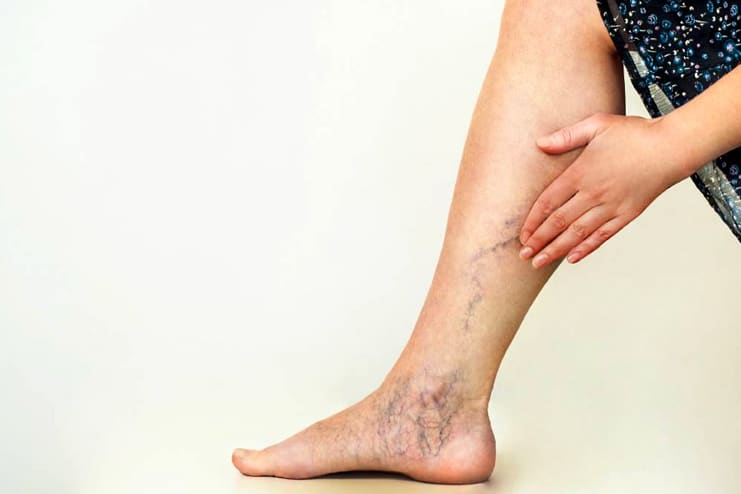
Varicose Veins is a condition in which the veins in the body, especially ones in the legs become enlarged and dilated, resulting in it being overfilled with blood in it. Often also referred to as varicoses or varicosities, this condition is characterized by the appearance inflamed and swollen veins or blood vessels on the affected area.
This disease is often a very common problem that not many people tend to pay heed to. Around 25% of people (especially women) around the world suffer from this problem. While the most common area that’s visibly affected is the lower legs, it is often also seen on the upper side of the palms and a few other parts of the body.
How Does it Look Like?
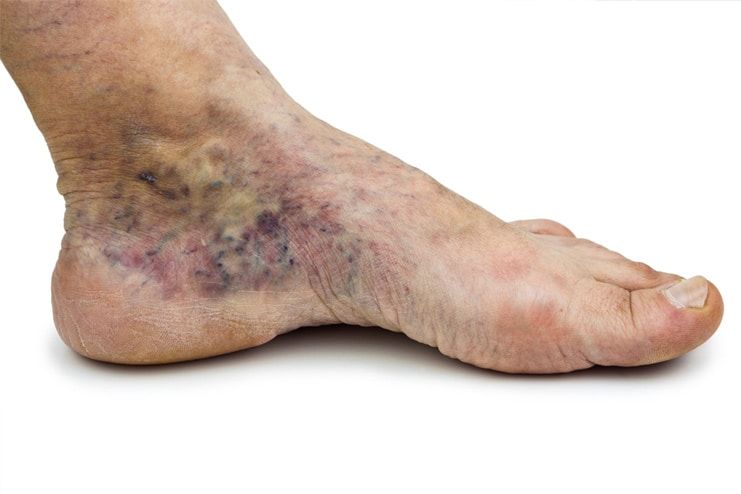
While we have more or less mentioned how the appearance of the varicose veins predominantly is, let us point them out for better understanding.
Varicose veins are characterized by the following in terms of appearance:
- Inflamed blood vessels (veins)
- Pain, in severe cases
- Tenderness around the affected area
- A bluish tint to the skin because of the excess accumulated blood
How to get rid of Varicose Veins?
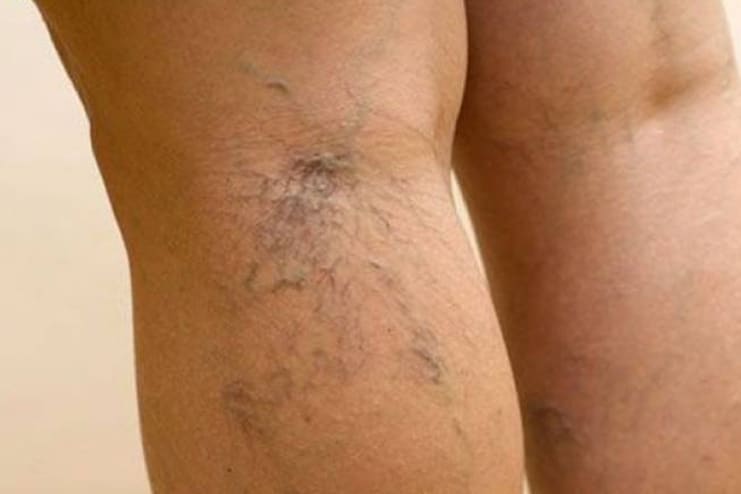
Varicose Veins can create a lot of complications if left untreated, the primary problem being that with the alteration of the blood pressure which is why it is necessary to ensure that you opt for easy and effective medical attention to get rid of the problem.
While we are definitely going to be discussing the natural remedies for varicose veins, there are also a number of changes one needs to do and all of it related to their diet and lifestyle because there are possibilities that all of these oftentimes root from the lagging lifestyle that one leads.
In order to find an effective cure for varicose veins, it is necessary that one actually goes out of their way to not just better their lifestyle but even their diet.
From opting for compression socks to including some of the effective remedies can be a useful cure for varicose veins.
Home Remedies for Varicose Veins
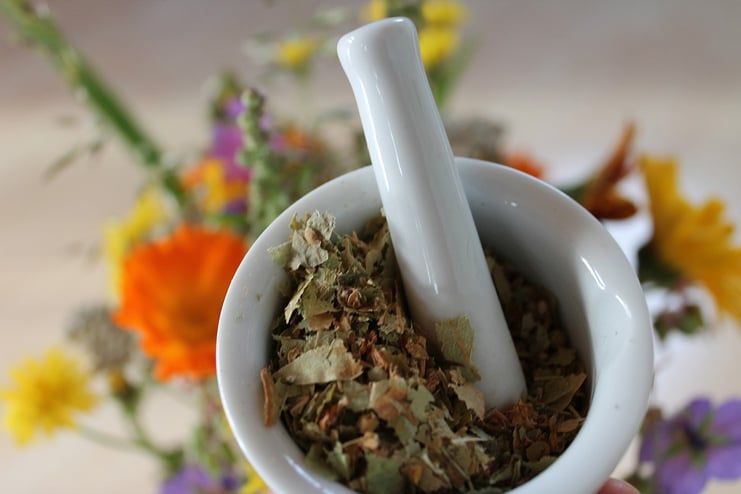 Much like every other disease and health ailment, even the varicose veins treatment actually does rely on a number of natural and home remedies that actually work to heal the problem over time.
Much like every other disease and health ailment, even the varicose veins treatment actually does rely on a number of natural and home remedies that actually work to heal the problem over time.

Check Out These Effective Natural Remedies For Varicose Veins.
In this section of the article, we are going to divert our focus to the common and effective remedies for the treatment of varicose veins in legs.
1. Leg Massage for Varicose Veins
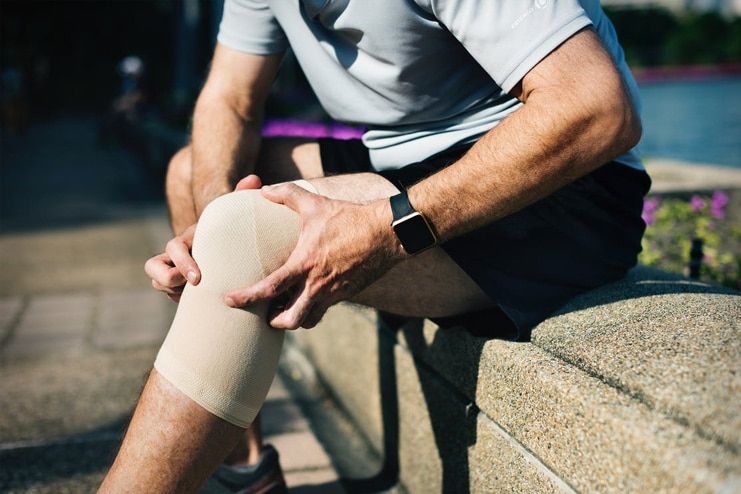 While many people might often correlate the advent of pain and inflamed blood vessels with some good old massage to get rid of the complications of varicose veins, it is way more than that. Majority of the experts often tend to advice people suffering from varicose veins to stay away from massages as a possible cure because of the fact that it could very well aggravate the situation.
While many people might often correlate the advent of pain and inflamed blood vessels with some good old massage to get rid of the complications of varicose veins, it is way more than that. Majority of the experts often tend to advice people suffering from varicose veins to stay away from massages as a possible cure because of the fact that it could very well aggravate the situation.
That being said, light-handed and gentle massaging often tends to be an amazing remedy to get rid of the swelling and pain that is witnessed as accessory symptoms to this condition. Make sure that you don’t get the massage done by someone who doesn’t know what they are doing. If the situation calls for it, try and do it on your own.
What to do?
- Pour a few drops of massage oil onto the palm
- With gentle hands, massage the inflamed area with your palm
- Make sure not to put excess pressure and go very light handed to get temporary relief from the pain
2. Apple Cider Vinegar for Varicose Veins
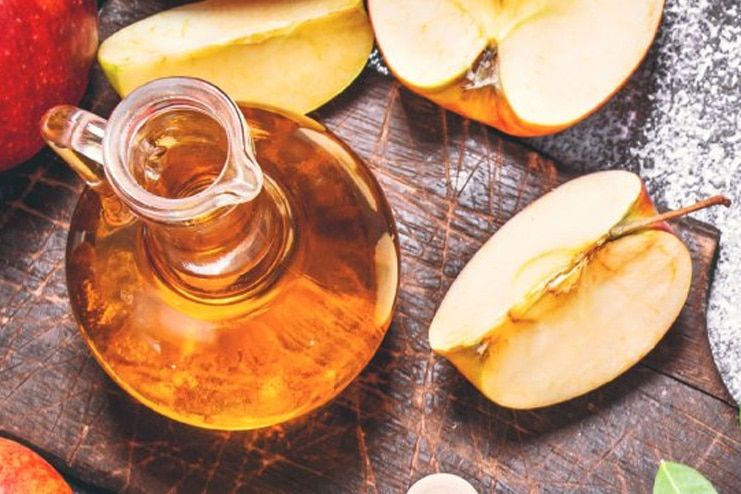
Apple Cider Vinegar is an effective remedy that helps curb the signs and symptoms related to Varicose Veins. While there are very limited studies that explain the actual mode of action of this specific remedy, it is believed that the anti-inflammatory (R), as well as the amazing boost to the blood circulation, is what helps in curing the problem.
Once the blood circulation is boosted, the swelling, as well as the pain, diminishes to a great extent and it helps bring the condition back to normal again.
What to do?
For application
- Apply some undiluted apple cider vinegar over the painful varicose veins
- Either leave it on or wash it off with some water
For consuming
- Mix 1-2 tablespoons of apple cider vinegar to a glass of water
- Drink this once in the morning
- Do this once every day
3. Aloe Vera for Varicose Veins
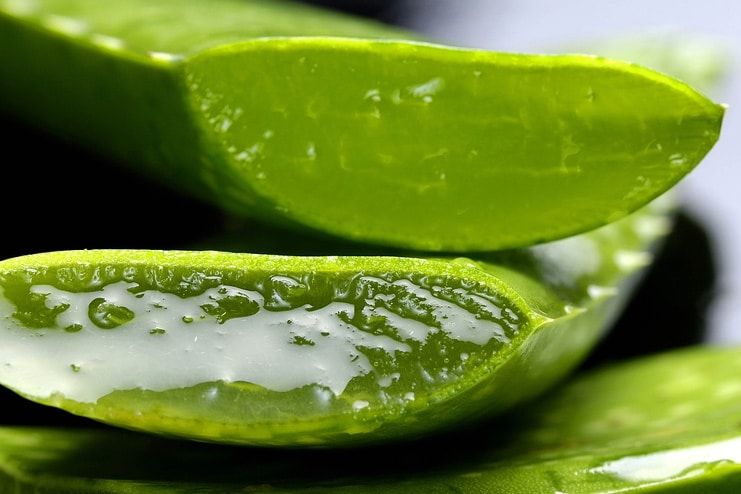 Aloe Vera doesn’t actually help gets rid of the causative problem behind varicose veins but is very effective in getting rid of the accessory symptoms that we see on the outside.
Aloe Vera doesn’t actually help gets rid of the causative problem behind varicose veins but is very effective in getting rid of the accessory symptoms that we see on the outside.
The soothing effect of the aloe vera helps subside the pain to a certain extent. Not just that, it also possesses anti-inflammatory properties which helps reduce the inflammation and swelling down over time, helping reduce the pain as well.
What to do?
- Cut a leaf of aloe vera and apply it over the veins that are swollen
- Massage it into the skin with gentle hands
- Alternatively, you can also consume aloe vera juice to help cleanse your system for a better rate of blood circulation around the body
4. Aspirin for Varicose Veins
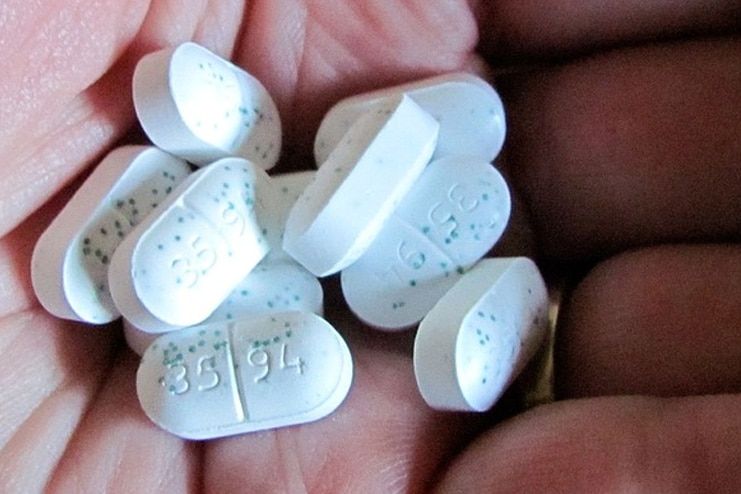 Daily aspirin therapy is something that actually is helpful for patients who are at the risk of heart strokes and other heart diseases. With that being said, if you are thinking of starting the daily therapy with aspirin, it is necessary that you consult a doctor first before proceeding with it.
Daily aspirin therapy is something that actually is helpful for patients who are at the risk of heart strokes and other heart diseases. With that being said, if you are thinking of starting the daily therapy with aspirin, it is necessary that you consult a doctor first before proceeding with it.
While the aspirin therapy might work for one, the same might not be that fruitful for someone else because of their lifestyle and diet. There are little to no study regarding whether or not aspirin will actually be an effective remedy for varicose veins but it is believed that the consumption of aspirin helps increase the rate of blood flow (R) in the body, thereby aiding in preventing the clots or the associated problems.
What to do?
- Consume one tablet of aspirin every day
- Consult a doctor before proceeding with this specific remedy
5. Tomato for Varicose Veins
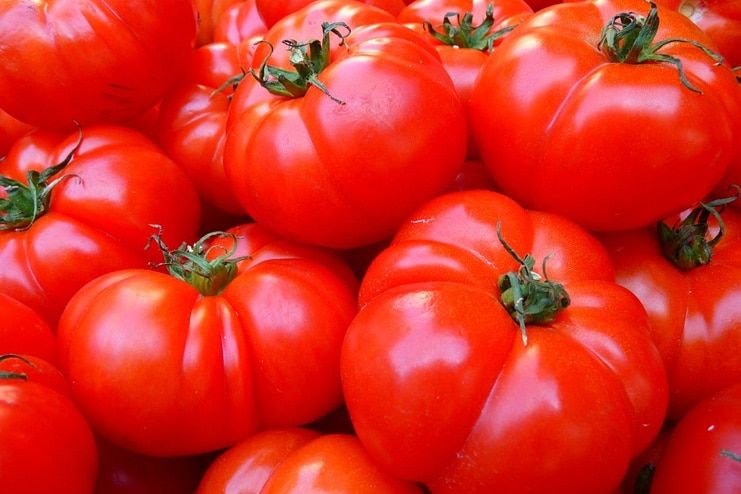 While there is no direct correlation of consumption of tomatoes with the best treatment for varicose veins but there are accessory effects of it that could help heal the complications associated with varicose veins.
While there is no direct correlation of consumption of tomatoes with the best treatment for varicose veins but there are accessory effects of it that could help heal the complications associated with varicose veins.
It is believed that the Vitamin K in the tomatoes has beneficial impacts in the prevention of blood clots (R). Not just that, the consumption of tomatoes also helps keep the levels of cholesterol and triglyceride (R) in check which is very beneficial in bettered circulation of the blood in the body, thereby helping in fixing the accessory symptoms of swelling, pain and the purplish and bluish appearance of the veins on the legs or the affected areas of the body.
What to do?
- Increase the intake of tomatoes, especially raw, either in salads or just on its own
- Make sure to eat in moderation because even the excess consumption of it can inflict negative impacts on the body
6. Garlic for Varicose Veins
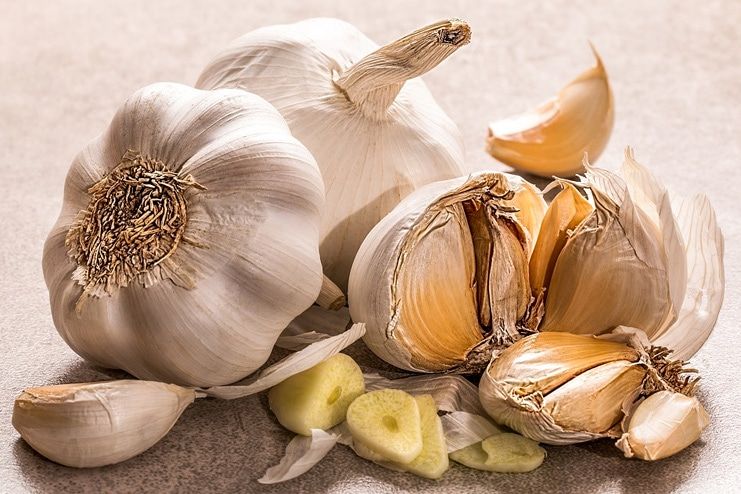 Garlic has a multifaceted approach in healing the problem associated with Varicose Veins. The anti-inflammatory (R) properties of this condiment are amazing in reducing the swelling associated with the painful varicose veins. Not just that, it also helps in getting rid of the toxins from the body which is what contributes to improving the overall rate of blood circulation (R).
Garlic has a multifaceted approach in healing the problem associated with Varicose Veins. The anti-inflammatory (R) properties of this condiment are amazing in reducing the swelling associated with the painful varicose veins. Not just that, it also helps in getting rid of the toxins from the body which is what contributes to improving the overall rate of blood circulation (R).
All in all, consumption of garlic is the best natural treatment for varicose veins because it takes down the pain and inflammation as well as helping boost the blood circulation at the same time.
What to do?
For consumption
- Consume a clove of raw garlic every morning
- Alternatively, you can also include the same in the everyday diet for the same kind of benefits
For application
- Crush 6-7 garlic cloves and extract the juice
- Pour the juice into a jar and add the freshly squeezed juice of 2-3 oranges to it
- Add 2-3 tablespoons of olive oil to it and mix it all together
- Let it sit for 12 hours
- Apply this on the area of the inflamed veins and leave the same overnight
- Repeat this every night before going to sleep
7. Ginger for Varicose Veins
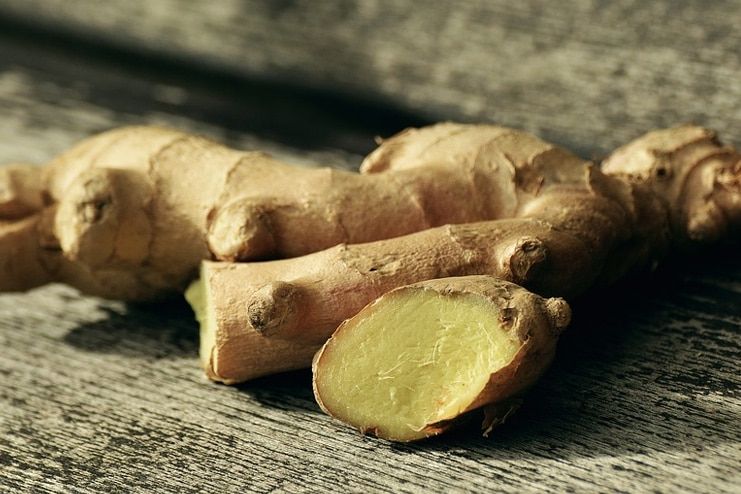 Ginger is yet another one of the remedies for varicose veins that has impactful effects in curing the problem from within. Not only does ginger help lower the blood pressure (R) but also promotes the rate of blood circulation in the body which is one of the most effective ways to get rid of varicose veins for good.
Ginger is yet another one of the remedies for varicose veins that has impactful effects in curing the problem from within. Not only does ginger help lower the blood pressure (R) but also promotes the rate of blood circulation in the body which is one of the most effective ways to get rid of varicose veins for good.
Many times, the accumulation of the protein fibrin in the blood ends up causing the inflammation in the veins which can further cause pain in the affected area. The consumption of ginger helps break down those fibrin (R) proteins, thereby normalizing the flow of blood in the body, helping in curing the problem.
What to do?
- Indulge in some well steeped ginger tea in the mornings
- Alternatively, you can also increase the intake of ginger as a part of your daily diet
8.Potato for Varicose Veins
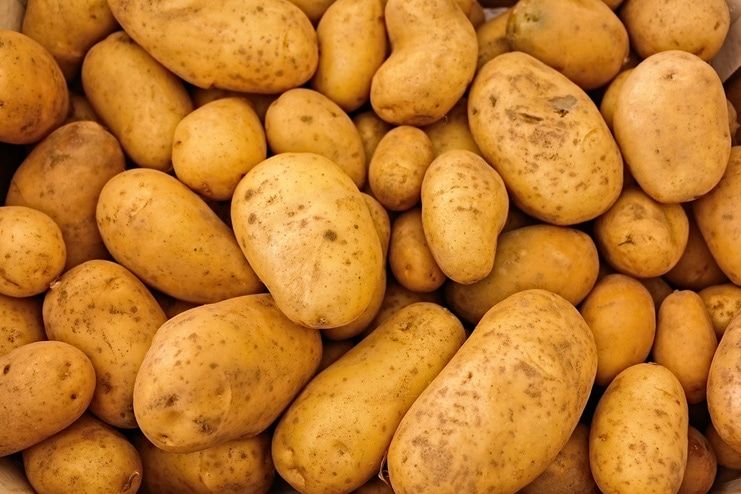 Much like a number of other mentioned remedies, even potato has indirect benefits in improving the condition associated with varicose veins. As mentioned in prior sections, the diet and lifestyle play a very significant role in improving the overall condition of the varicose veins.
Much like a number of other mentioned remedies, even potato has indirect benefits in improving the condition associated with varicose veins. As mentioned in prior sections, the diet and lifestyle play a very significant role in improving the overall condition of the varicose veins.
Foods that are loaded with fibers and essential vitamins have an important effect in getting rid of the condition of the varicose veins. If you are someone who suffers from irritable bowel syndrome and constipation (R), consumption of potatoes and sweet potatoes can actually be very beneficial in keeping that in check. Taking that for granted often aggravates the condition related to the varicose veins.
What to do?
- Consume potatoes and other kinds of fibre-rich foods like that of nuts, flaxseeds, wheat etc.
9.Butcher’s Broom for Varicose Vein
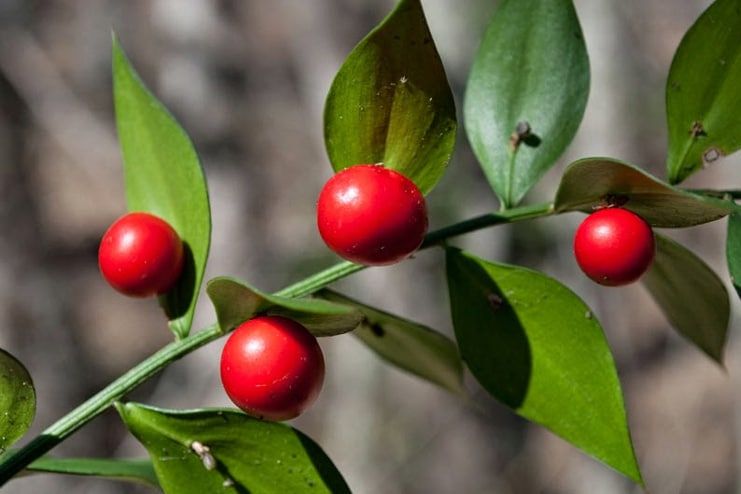
Butcher’s broom is not a very common remedy that you will generally come across on a daily basis but it is equally effective in getting rid of the problem related to varicose veins.
With limited studies in this regard, it is often hard to provide factual evidence but it is believed that the consumption of this extract helps in improving the blood flow. The butcher’s broom has vaso-constricting (R) properties which helps improve the blood circulation throughout the body, providing a cure for varicose veins.
What to do?
- For chronic venous inefficiency, consume 150 mg of the extract of the butcher’s broom on a daily basis
- Because of the limited research, make sure to consult a doctor before consuming it
10.Parsley for Varicose Veins
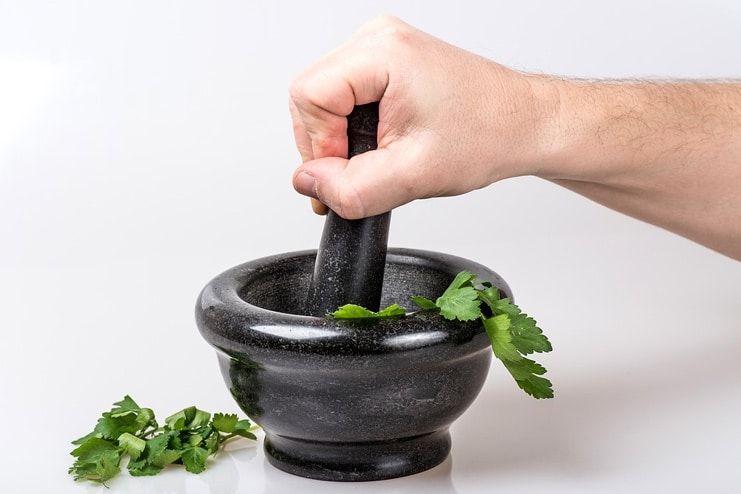 The rich content of Vitamin C in the parsley has boosting antioxidant properties which helps flush out the unnecessary toxins (R) from the body to better the overall blood circulation. Not just that, it is what also helps in the regeneration of the collagen fibers of the blood vessels.
The rich content of Vitamin C in the parsley has boosting antioxidant properties which helps flush out the unnecessary toxins (R) from the body to better the overall blood circulation. Not just that, it is what also helps in the regeneration of the collagen fibers of the blood vessels.
The strengthened capillaries and other blood vessels (R) help in bettering the symptoms that come along with the advent of varicose veins, be it the swelling or even the pain and appearance of the purplish veins.
What to do?
For consumption
- Steep a few sprigs of parsley in some hot water for 10 minutes. Take it off the heat and let it steep for 10 minutes. Strain the liquid and drink this 1-2 times daily.
- Alternatively, you can also just use parsley tea bags to get the same benefits
For application
- Steep a handful of parsley leaves in a pot of hot water
- Leave it into steep for 10-15 minutes
- Strain the liquid and add some essential oils in it like peppermint and marigold essential oil
- Keep it in the refrigerator for an hour or so
- Apply this on the area of the varicose veins with a cotton pad
- Leave it on and repeat this 3-4 times daily
11.Lemon Juice for Varicose Veins
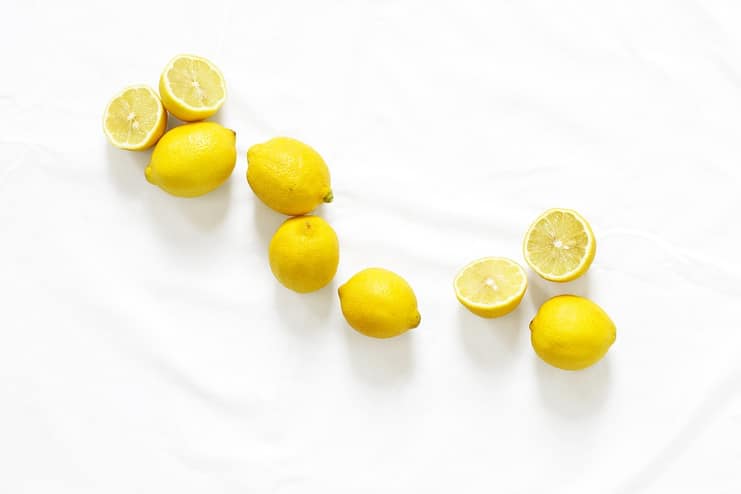 Lemons are rich in Vitamin C which has amazing blood purifying properties and helps flush out the unwanted toxins (R) out of the body, thereby aiding in providing with amazing boost to the overall rate of blood flow. Pairing lemon with some baking soda further helps alkalise the blood (R), thereby perpetuating neutralizing properties on the treatment for varicose veins in legs.
Lemons are rich in Vitamin C which has amazing blood purifying properties and helps flush out the unwanted toxins (R) out of the body, thereby aiding in providing with amazing boost to the overall rate of blood flow. Pairing lemon with some baking soda further helps alkalise the blood (R), thereby perpetuating neutralizing properties on the treatment for varicose veins in legs.
What to do?
- Squeeze 1-2 tablespoon of lemon juice in a glass
- Add 1/8th teaspoon of baking soda to it and top the glass off with water
- Let the fizz die down and then consume it
- Make sure to do this 3-4 times a week because excess baking soda can often negatively impact the body
- Alternatively, you can also apply the lemon juice directly on the affected area of the varicose veins for effective results
12. Olive Oil for Varicose Veins
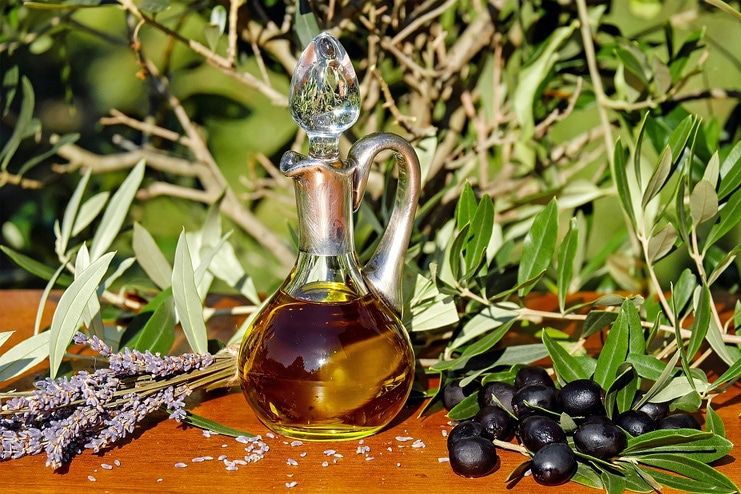 Improved blood circulation is one of the keys to bettered varicose veins treatment. Olive Oil might not have direct impact in treating the condition of varicose veins completely from within but it helps in subsiding the accessory symptoms that come along with this condition.
Improved blood circulation is one of the keys to bettered varicose veins treatment. Olive Oil might not have direct impact in treating the condition of varicose veins completely from within but it helps in subsiding the accessory symptoms that come along with this condition.
Massaging with some olive oil can help improve the blood circulation throughout the body, ease the stiffness and pain along with the inflammation that is often witnessed in this case. The only thing to do is to ensure not to go to hard handed on the application because the same can aggravate the situation.
What to do?
- Mix 2-3 tablespoons of Olive oil with 1-2 tablespoons of Vitamin E oil
- Warm this up in the microwave a little
- Apply this on the area of the inflamed veins with gentle hands
- Repeat this once or twice every day
13-Coconut Oil for Varicose Veins
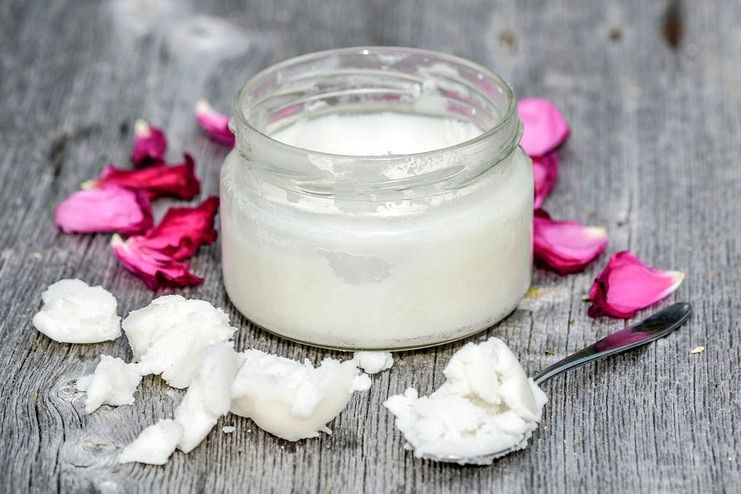 The usage of coconut oil is basically to help tether the process of massage to relieve the symptoms associated with varicose veins. Application of coconut oil helps provide with some lubrication to be able to massage easily without much obstruction.
The usage of coconut oil is basically to help tether the process of massage to relieve the symptoms associated with varicose veins. Application of coconut oil helps provide with some lubrication to be able to massage easily without much obstruction.
Since too rough of a massage often aggravates the situation, it is always best to stick to the much gentler way of doing so and what better way than to use coconut oil for the same, right? It helps improve the blood circulation (R) as well as reduces the pain and inflammation.
What to do?
- Warm some coconut oil in a microwave
- Apply this on the area of the varicose vein and massage it into the skin
- Leave it on
- Repeat this once or twice daily
14.Castor Oil for Varicose Veins
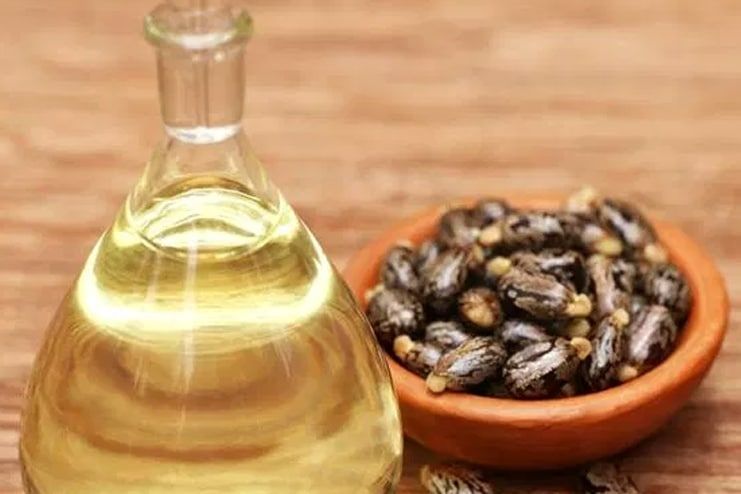
Castor Oil is much more than just common massage oil in the aspect of treatment for varicose veins. The active compound of the castor oil, ricinoleic acid has natural anti-inflammatory properties (R) which is beneficial in treating the swelling and inflammation that accompanies the condition of varicose veins.
Not just that, it also helps in improving the overall blood circulation (R) in the body and helps prevent the induction of blood clots, thereby aiding in curing the inflamed veins that cause pain.
What to do?
- Warm-up 2-3 tablespoons of castor oil in a microwave
- Apply this on the area of the varicose veins and gently massage it into the skin
- Repeat this consistently for the first two days, and then reduce the frequency to every other day
15.Cypress Oil for Varicose Veins
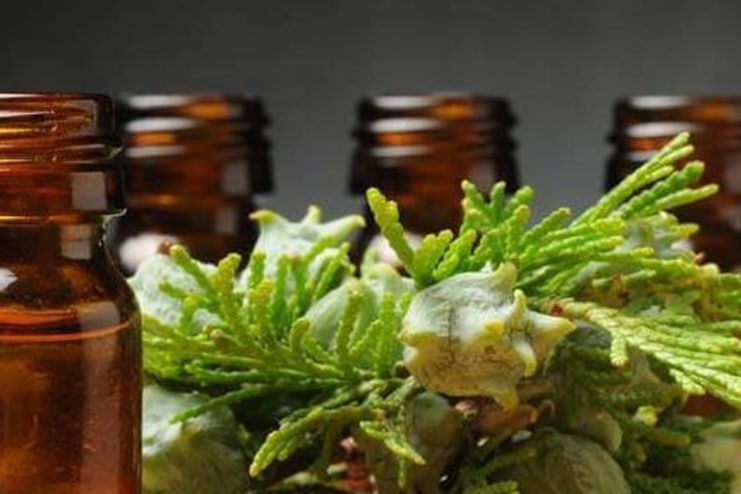
Cypress Oil is yet another amazing effective cure for varicose veins. Just the topical application of this specific essential oil has beneficial impacts in boosting the blood flow (R) to the heart. Not just that, it also helps and stimulates the overall blood circulation in the body which is yet another amazing benefit.
The heightened rate of blood flow is what helps get rid of the inflammation (R) and alleviates the pain that accompanies the condition.
What to do?
- Pour a few drops of cypress oil on your palm
- Apply it on the area of the varicose veins and gently massage it into the skin
- Repeat this once or twice daily for effective results
16. Epsom Salt for Varicose Veins
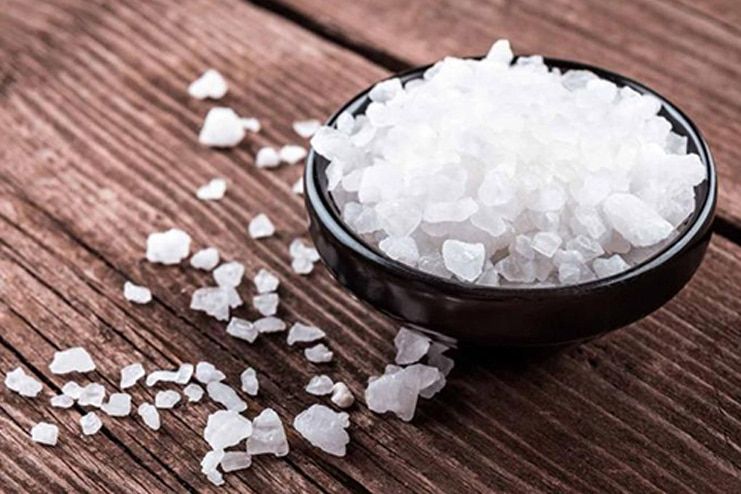
The combination of anti-inflammatory as well as detoxifying properties (R) of the magnesium sulfate that’s found in the Epsom salt is one of the primary factors that act as one of the best remedies for Varicose Veins.
It is the magnesium which lessens the swelling appearance of the veins and boosts the overall blood flow for an even better result in its healing. The only thing to ensure is that you should absolutely avoid the consumption of Epsom salt because the same can inflict negative impacts on the body.
What to do?
- You can either add 3-4 tablespoons of Epsom salt in a bucket of lukewarm water and soak your legs in it or try the other method
- Add 3-4 tablespoons of Epsom salt in the bathtub and soak your body in it
17.Compression for Varicose Veins
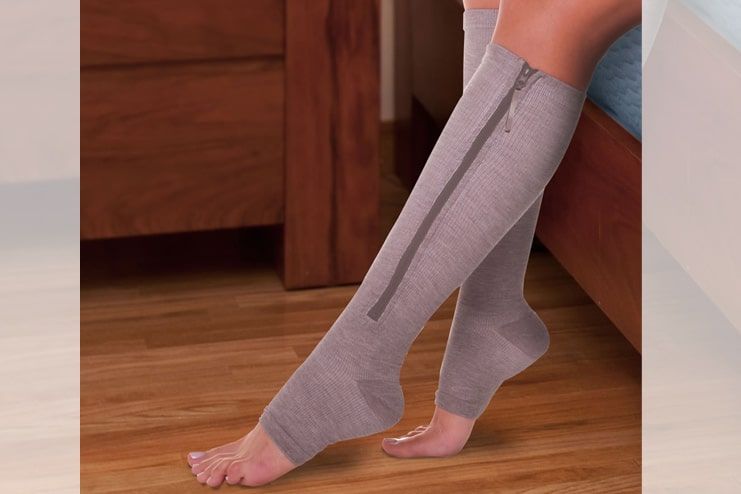
One of the most common reasons behind the induction of varicose veins is because of the lack of elasticity in the veins and the blood vessels which end up dilating the veins, followed by excess flow of blood that causes the inflammation.
A consistent pressure with something like that of the compression socks helps in reducing the diameter of the vein because of the enlargement. This helps the vein valves to prevent any kind of backflow (R), thereby promoting efficient flow of blood throughout the body. If you are planning on trying out the compression technique, make sure to consult a doctor before jumping head first into this.
What to do?
- Consult a doctor first to get prescribed with the suitable compression garment
- Wear it around the area where the varicose veins are visible
- Make sure to take them off during the night
18.Mud Pack for Varicose Veins
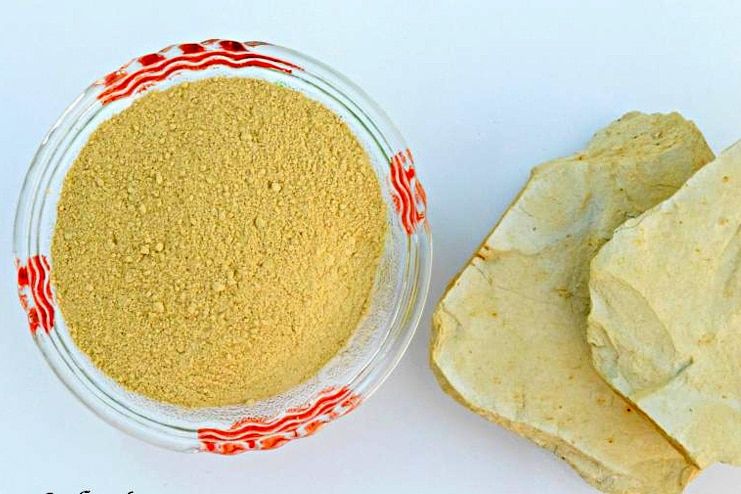
Yet another one of the amazing natural remedies for varicose veins is the application of mud pack on the varicose veins. Applying a uniform layer of the mud pack on the affected area of the varicose veins helps reduce the enlargement of the vein.
It is believed that the effect of this is much similar to how a compression garment works. Once the mud pack starts drying, it creates a tightening effect around the area, thereby constricted the dilated blood vessels which aids in better rate of blood flow.
What to do?
- Mix 2-3 tablespoons of fuller’s earth in a bowl with some water to make a smooth paste
- Apply this on the affected area of the varicose veins and leave it on
- Leave it on overnight
- Wash the dried mud off the next day and pat dry with a towel
- Repeat this every other day for effective results
19.Cayenne Pepper for Varicose Veins
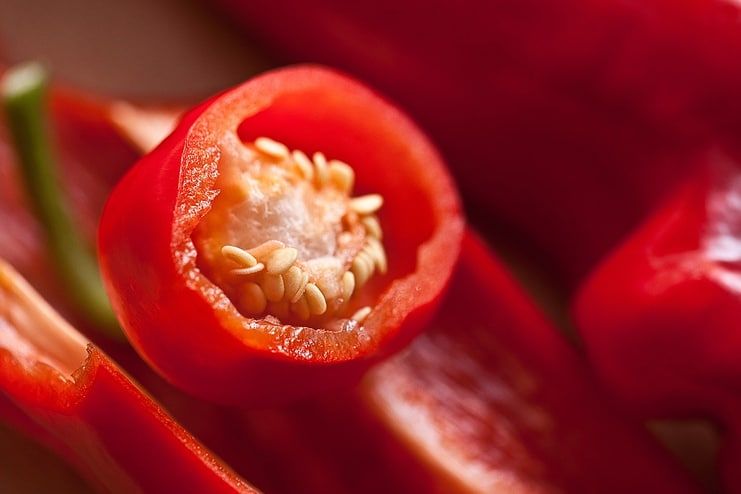 Cayenne pepper has multiple benefits when it comes to treating the condition of varicose veins. The rich content of Vitamin C as well as flavonoids in it is beneficial in protection of the blood vessels (R) from any form of free radical damage which is very beneficial in strengthening the walls of the blood vessels.
Cayenne pepper has multiple benefits when it comes to treating the condition of varicose veins. The rich content of Vitamin C as well as flavonoids in it is beneficial in protection of the blood vessels (R) from any form of free radical damage which is very beneficial in strengthening the walls of the blood vessels.
Not just that, the active component in the cayenne pepper, capsaicin, is known to possess anti-inflammatory (R), analgesic (R) as well as blood thinning properties which cumulatively act to help better the blood circulation as well as get rid of the swelling in the affected area.
What to do?
For consumption
- Mix ½ tablespoon of cayenne pepper powder in a glass of water and drink that in the morning
- Gradually increase the amount from ½ to 1 tablespoon
For application
- Mix 1 tablespoon of cayenne pepper powder with some water to make a paste
- Apply this on the affected area of the varicose veins
- Leave it on for 10-20 minutes
- Wash it off with some water
- Repeat this once every day
20.Pine Tree Bark for Varicose Veins
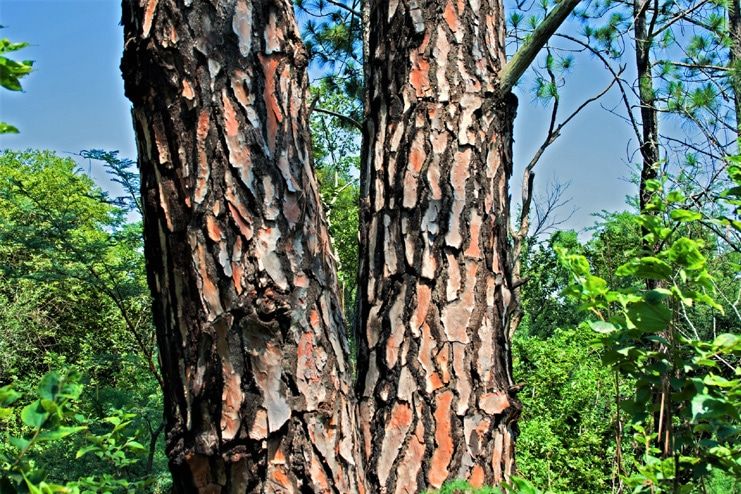
While many people won’t know about this, it is believed that the pine tree bark is actually an amazing treatment for the complications of varicose veins. It is loaded with beneficial vitamins and minerals which have positive impacts in treating the painful varicose veins.
A study conducted on 133 women who wore compression socks for their problem of varicose veins witnessed amazing results at the end of the study. It is believed that the Pycnogenol (R) which is the extract of the pine tree bark has beneficial impacts on improving the overall blood flow, thereby curing the problem for good.
What to do?
- Consume 50mg of the Pycnogenol extract twice a day
- Make sure to consult a doctor before starting the treatment in case it hinders with any other health ailment or even the medication
21.Witch Hazel for Varicose Veins
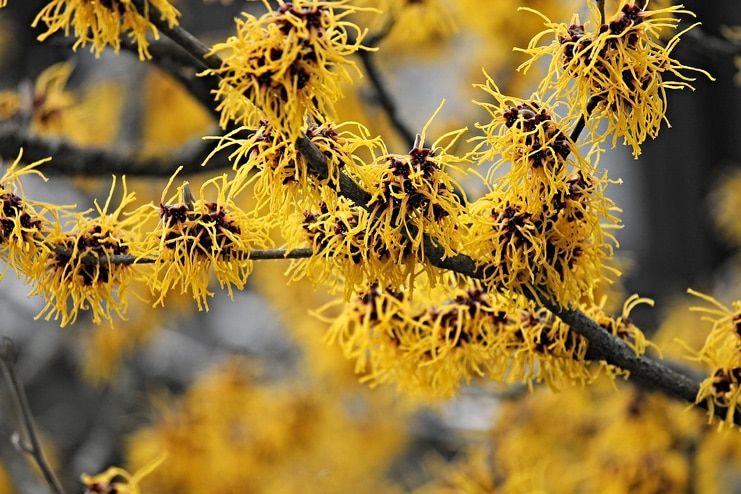 Witch hazel has the perfect combination of astringent as well as anti-inflammatory (R) properties which have amazing benefits in shrinking the size of the veins, aiding in reducing the swelling that occurs because of the dilated veins.
Witch hazel has the perfect combination of astringent as well as anti-inflammatory (R) properties which have amazing benefits in shrinking the size of the veins, aiding in reducing the swelling that occurs because of the dilated veins.
Not just that, it also contains tannins and an array of volatile oils which have positive impacts on healing the pain and subsiding the inflammation that is caused because of the swelled veins.
What to do?
- Soak a cotton pad with some witch hazel
- Apply this on the affected area of the varicose veins
- Leave it on for 20-30 minutes
- Wash it off with some water
22.Horse Chestnut Seeds for Varicose Veins
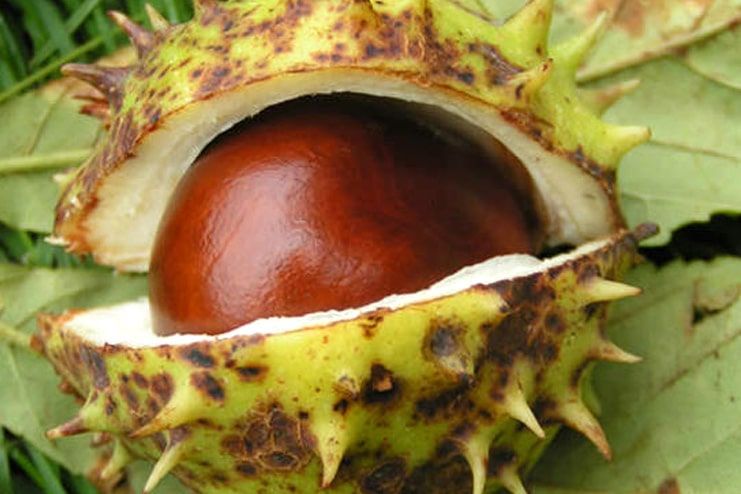
Horse chestnut seeds are one of the most underappreciated but very effective remedies for varicose veins. The main active compound of the horse chestnut seeds is known as aescin which is what helps in the varicose veins treatment.
Aescin has amazing strengthening properties of the veins (R) which are beneficial in strengthening the walls of the veins to restrict any kind of backflow of the blood. It also helps prevent inflammation, thereby alleviating the swelling as well as the pain that accompanies the condition. It also boosts the regeneration of the weakened veins.
What to do?
- Consume 50 mg of the horse chestnut seeds extract daily
- If you suffer from any severe health ailment, make sure to consult a doctor before consuming the supplements
23.Gotu Kola for Varicose Veins
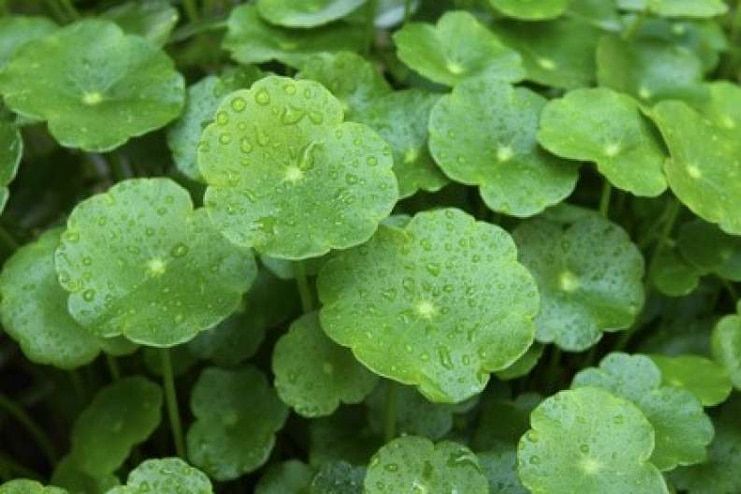
Gotu Kola is a very common remedy as a cure for varicose veins (R) in the Indian subcontinent and parts of the South-East Asian countries. It has effective impacts in bettering the condition of the veins, thereby helping cure the problems associated with varicose veins.
Not only does it combat any form of excess leakage, it also helps in healing the inflammation that is witnessed in multiple conditions in this disease. It is also loaded with essential tritepenoids which has beneficial impacts in strengthening the blood vessels to induce much more efficient blood flow.
What to do?
- Get the dried herb powder or even the extract of this herb. As for the dosage, it is necessary to ensure that you consult a doctor to have a clarified idea about the same.
- Alternatively, even the topical application of this herb helps with the signs and symptoms of varicose veins
24.Marigold for Varicose Veins
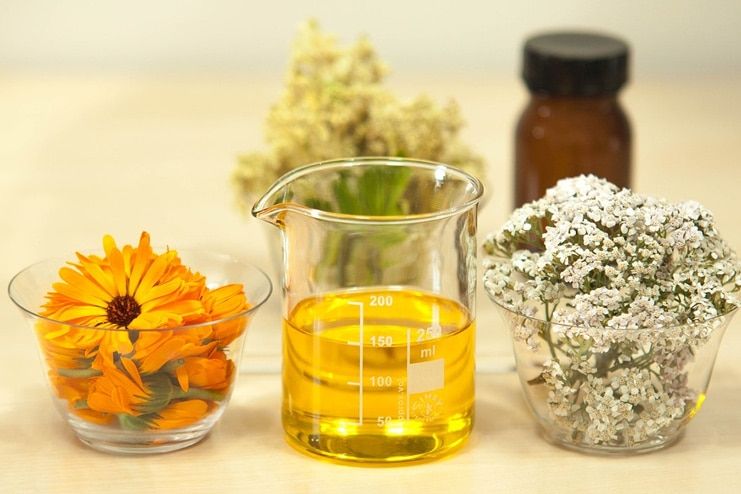 Yet another amazing natural treatment for varicose veins is that with the marigold. Yes, the flower. While it doesn’t necessarily impact the healing process directly, the marigold has amazing benefits in treating the accessory symptoms that come along with varicose veins like itching, dryness, eczema etc.
Yet another amazing natural treatment for varicose veins is that with the marigold. Yes, the flower. While it doesn’t necessarily impact the healing process directly, the marigold has amazing benefits in treating the accessory symptoms that come along with varicose veins like itching, dryness, eczema etc.
Not just that, it also possesses mild anti-inflammatory properties which have positive impacts in treating the swelling that appears because of the dilated veins. It also promotes blood circulation, hence, aiding in the process of healing even further.
What to do?
- Boil some water in a pot and add a handful of the marigold flowers into it
- Let it boil and then steep for 2 hours
- Strain the liquid and store it in a spray bottle
- Spray it on the area of the varicose veins and massage it into the skin with gentle fingers
- Repeat this multiple times throughout the day
25.Grape Seed Extract for Varicose Veins
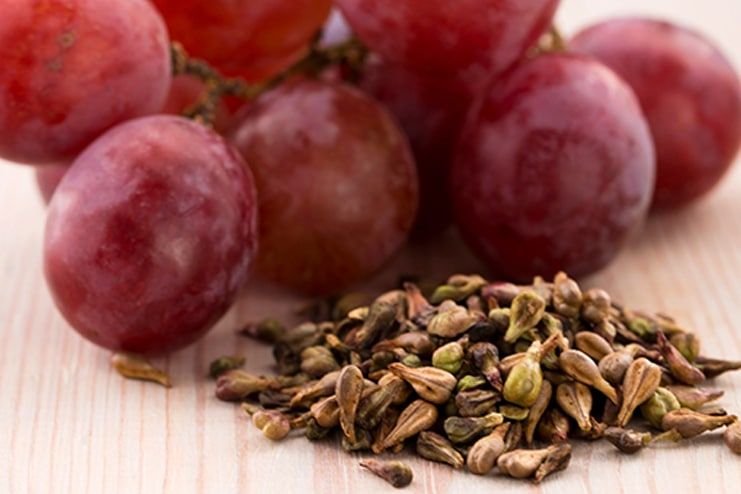
Black and red grape seeds are loaded with beneficial oligomeric proanthocyanidin complexes which have amazing impacts in boosting the overall blood circulation in the body which is very important in getting rid of the pain and inflammation that one undergoes because of the varicose veins.
Not just that, the flavonoids in the grape seeds help in protecting the veins (R) and other blood vessels from the free radicals, thereby strengthening them further.
What to do?
- As per dosage, one should consume 720 mg of the grape seed extract
- Make sure to consult a doctor if you suffer from any additional health ailments
26. Lemongrass Oil for Varicose Veins
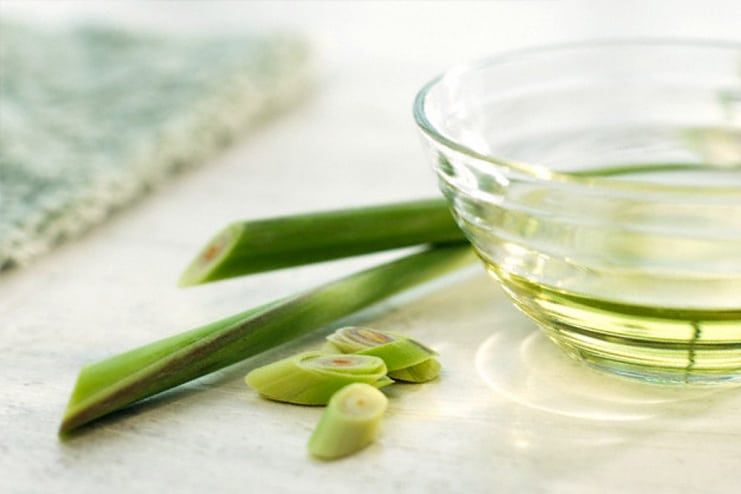
Lemongrass oil is known for its effective analgesic (R) as well as anti-inflammatory (R) properties which have beneficial impacts in the treatment for varicose veins in legs. Not only does it boost the overall blood circulation, it also effectively helps in preventing blood pooling and strengthens the blood vessels which are one of the most important factors when it comes to the varicose veins treatment.
What to do?
- Pour some lemongrass oil on your palm
- Apply it on the affected area of the varicose veins
- Gently massage it on the skin and let it seep into the skin
- Repeat this daily for effective results
What Causes Varicose Veins?
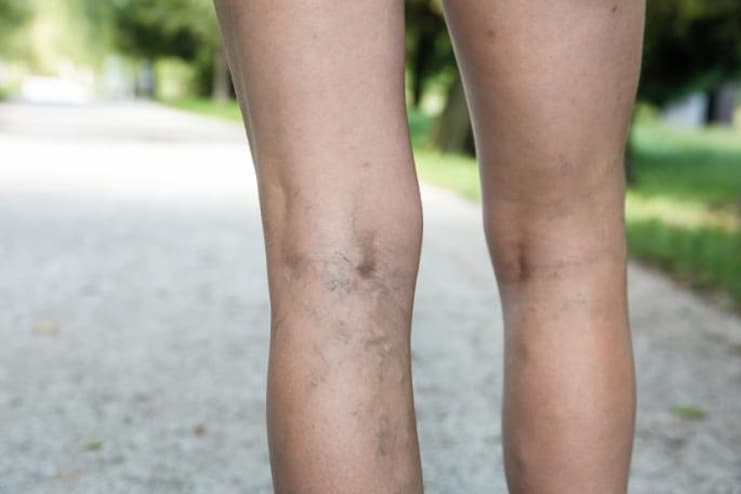
Varicose veins are the outcomes of improperly functioning veins in the body. It is a general norm that the blood flows in one direction without any kind of backflow and the valve is what ensures of it. When the valves in the body starts dysfunctioning, that’s when the blood starts pooling and ends up distending the veins and making them dilated and causing the painful varicose veins.
That being said, there are some common grounds of causes that could be behind this problem. Some of the common causes of varicose veins include:
- Menopause
- Age (preferably over 50)
- Pregnancy
- Continuously standing for longer periods of time
- Obesity and excessive weight gain
- Hereditary issues of this disease in the family
What are the symptoms of Varicose Veins?
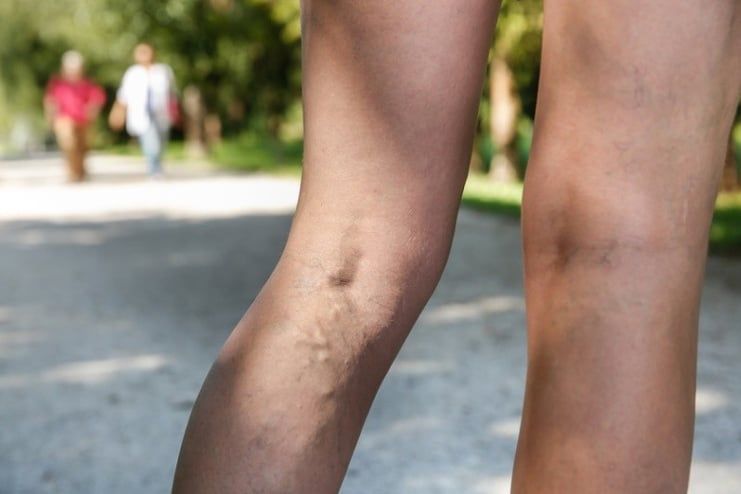
Varicose veins and spider veins are somewhat same but different in a number of approaches. Many tend to often get these confused. But, the symptoms of both of these tend to differ quite a lot for you to easily distinguish them without a speck of doubt.
Now that we are here, let us discuss the common signs and symptoms associated with varicose veins that not many people tend to be aware of. These set of symptoms are divided into two separate categories based on their severity.
For the preliminary stage:
- Purplish and bluish coloured veins
- Inflammation of the veins
- Twisted and bulging appearance of the veins
- Pain, in most cases
For the severe stage:
- Heavy feeling in the affected area, especially the legs
- Burning and throbbing pain because of muscle cramping in the lower part of the legs
- Gradually worsening pain after sitting or standing for longer periods of time
- Bleeding from the veins
- Hardening of the vein
- Inflammation of the skin or formation of skin ulcers
Risk factors of Varicose Veins
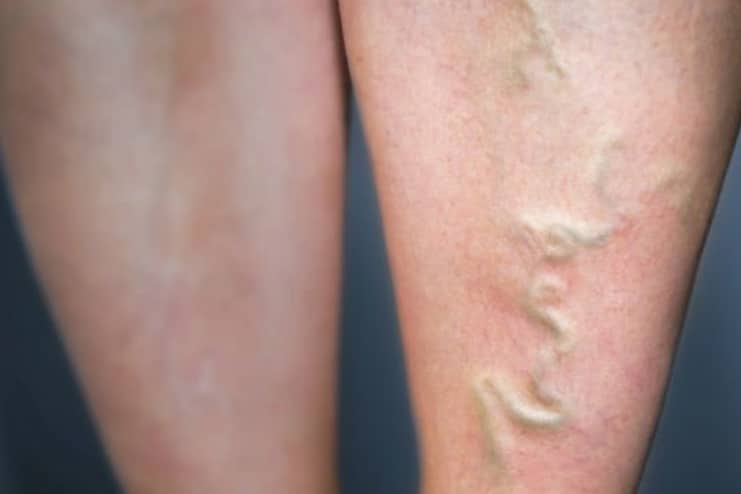
Varicose veins are often prone to a fixed number of risk factors that enhance their probability of induction, be it in a certain sex or even someone of a certain age. If you have been suffering from consistent painful varicose veins and still wonder of the common risk factors associated with it, this is the section you need to indulge in.
Some of the risk factors of varicose veins include:
- Aging is one of the most common risk factors associated with varicose veins. The growing age is sometimes what is the primary contributing factor to the degrading condition of the veins and the valves that help regulate the blood flow in the body.
- When it comes to which sex is at more risk of developing varicose veins, it is women who are. Because of the fleeting hormonal changes that they undergo during the pregnancy, menstruation or even during menopause, there are chances of the heightened rate of the relaxation of the walls of the veins which result in pooling of the blood.
- If there is possible family history related to varicose veins, there are chances that you will contract the same too, if the lifestyle and diet are not taken into good account
- Being overweight often times contributes to the worsening condition of the veins and the blood vessels, thereby causing wear and tear of them. This not just ends up making the veins distended and dilated, it also ends up making them lose their elasticity which is one of the primary problems associated with the varicose veins.
- If you are finding yourself sitting or even standing for longer periods of time, there are chances that you will end up feeling drained and tired and even inflammation around the back of the lower part of the legs because of the worsened condition of the veins in the body
How to Prevent Varicose Veins?
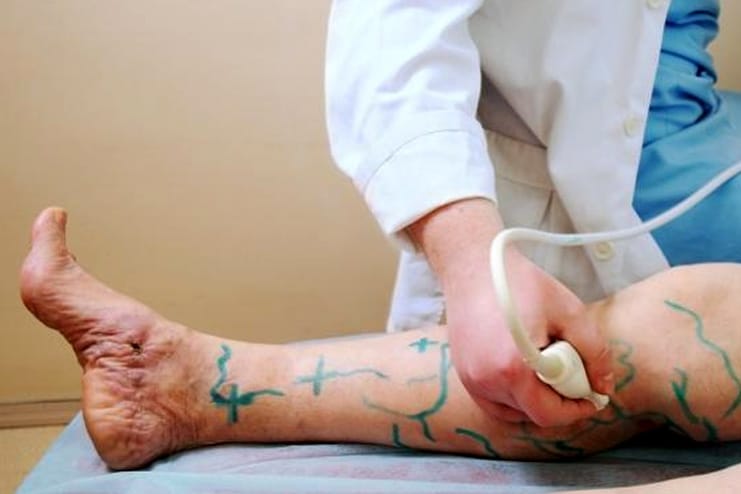
Varicose Veins can cause a lot of complications if left untreated for a longer period of time. If you have been witnessing signs and symptoms associated with this specific disease, it is time to take a step forth and opt for some of the preventive measures to be able to get rid of them for good.
While the remedies and other medical approaches can help heal the problem for good but isn’t it better to just prevent it than let it happen?
It is very important to ensure that one takes significant and impactful changes in their lifestyle as well as diet to be able to witness the changes that they wish to see.
Some of the effective preventive measures for varicose veins include:
- Try and avoid consistently standing or even sitting for longer periods of time because the same tends to induce blood pooling the body. If you have been standing for longer time periods, try and walk around for some time to help with the blood flow to every single part of the body.
- Maintaining a healthy weight is not just an effective preventive measure for varicose veins but for an overall well being. Obesity could be a very common reason behind a number of health ailments, varicose veins being one of them. Maintain a healthy diet and exercise on a regular basis to shed those extra calories.
- Regularly exercising helps give a boost to the overall blood circulation of an individual. If you have been consistently leading a sedentary lifestyle, it is time to change the same to experience a better and healthier well being that you possibly wouldn’t have experienced otherwise.
- Compression stockings or socks are amazing to prevent the contraction of varicose veins. The constant pressure helps prevent the dilation of the veins unnecessarily which is the groundwork of this condition.
Varicose Veins during Pregnancy
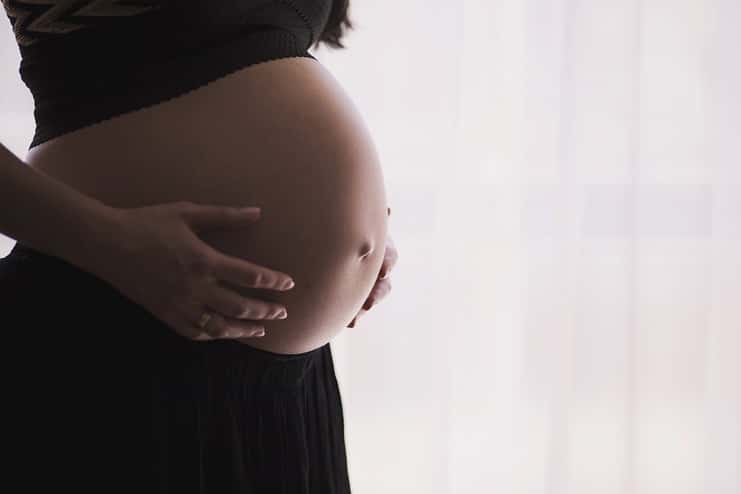
Varicose Veins during pregnancy is very common and is often witnessed in a number of would be mothers. The primary reason behind the same is because of the fact that there is an upsurge in the blood volume in the body with a subsequent decrease in the rate of flow of blood from the legs to the pelvis.
This is exactly what ends up causing blood pooling and increases the level of pressure on the veins which could also often result in hemorrhoids. This is why it is very important to treat the condition during pregnancy instead of taking it lightly.
Not just these, even the crazy changes in the hormone levels often tend to end up causing varicose veins during pregnancy. The increased levels of progestin ends up dilating the veins, thereby inducing the painful varicose veins in pregnant women. While these are harmless for the most part, it is still best to get the same treated to avoid any kind of complications in the later stages of the pregnancy.
If you are looking for effective preventive measures, some of the easy yet effective ones include:
- Avoid sitting or standing consistently
- Reduce sodium intake
- Sleep on your left side
- Avoid crossing the legs while sitting
- Exercise regularly
- Avoid high heels during the days of pregnancy
- Keep your legs elevated from time to time
Food for thought with some FAQs
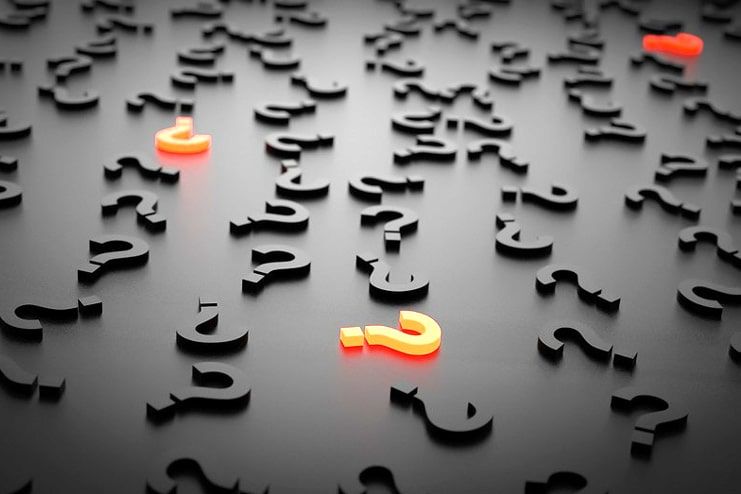 1-Do varicose veins hurt?
1-Do varicose veins hurt?
A-Yes, for the most cases, Varicose Veins induce pain in the affected individual. It is primarily because of the blood pooling which causes inflammation that ends up exerting pressure on the veins, thereby inducing pain.
2-Do Varicose Veins itch?
A-Many experts often believe that varicose veins are not very harmful (for the most part) but have the capability of inducing skin problems, ranging from dryness to consistent itching and signs of eczema. There are very limited studies which have a fair explanation as to why the same happens.
3-Can Varicose Veins cause blood clots?
A-Yes, Varicose Veins can very much be a reason behind formation of blood clots. As the vein valves tend to dysfunction, there are possibilities that the blood will backflow which is what ends up causing the blood pooling and possible blood clots in the veins.
4-Can Varicose Veins cause knee and leg pain?
A-While the same might not be that pronounced, there are possibilities that varicose veins might end up causing pain in the leg and knees because of the improper circulation of blood, inflammation of the veins and the lack of proper blood flow to every part of the body.
5-Can Varicose Veins cause blood pressure?
A-Blood pressure or the increase in it could be possible because of varicose veins if there are formations of blood clots that are obstructing the proper flow of blood to all the parts of the body.
Varicose Veins is a condition that is not taken very seriously by the majority of the people until and unless they reach their ultimate end. It is necessary to not just nip the problem at the bud but also ensure that the same is taken care of with essential remedies or even medical practices, if need be.
In this Article













